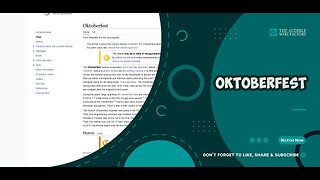La Llorona is a Hispanic-American mythical vengeful ghost who is said to roam near bodies of
La Llorona (literal translation meaning "The Weeping Woman" or "The Wailer") is a Hispanic-American mythical vengeful ghost who is said to roam near bodies of water mourning her children whom she drowned.
ORIGINS
Early colonial times provided evidence that the lore is pre-Hispanic, originating in the central highlands. However, La Llorona is most commonly associated with the colonial era and the dynamic between Spanish conquistadores and indigenous women. The most common lore about La Llorona includes her initially being an Indigenous woman who murdered her own children, which she bore from a wealthy Spaniard, after he abandoned her. The villainous qualities of La Llorona, including infanticide and the murdering of one's own blood is assumed to be connected to the narrative surrounding Doña Marina, also known as La Malinche, or Maltinzin in her original nomenclature. Today, the lore of La Llorona is well known in Mexico and the Southwestern United States.
The earliest documentation of La Llorona is traced back to 1550 in Mexico City. But there are theories about her story being connected to specific Aztec mythological creation stories. "The Hungry Woman" includes a wailing woman constantly crying for food, which has been compared to La Llorona's signature nocturnal wailing for her children. The motherly nature of La Llorona's tragedy has been compared to Chihuacoatl, an Aztec goddess deity of motherhood. Her seeking of children to keep for herself is significantly compared to Coatlicue, known as "Our Lady Mother" or Tonantsi (who's also comparable to the Virgen de Guadalupe, another significant mother figure in Mexican-culture), also a monster that devours filth or sin.
The legend of La Llorona is traditionally told throughout Mexico, Central America and northern South America. La Llorona is sometimes conflated with La Malinche, the Nahua woman who served as Hernán Cortés' interpreter and also bore his son. La Malinche is considered both the mother of the modern Mexican people and a symbol of national treachery for her role in aiding the Spanish.
Stories of weeping female phantoms are common in the folklore of both Iberian and Amerindian cultures. Scholars have pointed out similarities between La Llorona and the Cihuacōātl of Aztec mythology, as well as Eve and Lilith of Hebrew mythology. Author Ben Radford's investigation into the legend of La Llorona, published in Mysterious New Mexico, found common elements of the story in a German folktale dating from 1486. La Llorona also bears a resemblance to the ancient Greek tale of the demigoddess Lamia, in which Hera, Zeus' wife, learned of his affair with Lamia and killed all the children Lamia had with Zeus. Out of jealousy over the loss of her own children, Lamia kills other women's children.
The Florentine Codex is an important text that originated in late Mexico in 1519, a quote from which is, "The sixth omen was that many times a woman would be heard going along weeping and shouting. She cried out loudly at night, saying, "Oh my children, we are about to go forever." Sometimes she said, "Oh my children, where am I to take you?"
While the roots of the La Llorona legend appear to be pre-Hispanic, the earliest published reference to the legend is a 19th-century sonnet by Mexican poet Manuel Carpio. The poem makes no reference to infanticide, rather La Llorona is identified as the ghost of a woman named Rosalia who was murdered by her husband.
REGIONAL VERSIONS
The legend has a wide variety of details and versions. In a typical version of the legend, a beautiful woman named María marries a rich ranchero / conquistador to whom she bears two children. One day, María sees her husband with another woman and in a fit of blind rage, she drowns their children in a river,...
LINK TO ARTICLE: http://en.wikipedia.org/wiki/La_Llorona
TAGS: La Llorona, Female legendary creatures, Mexican ghosts, Mythology of the Americas, La Llorona
#GeneralKnowledge #AudibleWikiFactory #Audible #Wikipedia #LaLlorona
-
 41:13
41:13
The Audible Wiki Factory
1 year agoThe Oktoberfest is the world's largest Volksfest, featuring a beer festival and a travelling
391 -
 52:43
52:43
Talk Nerdy 2 Us
4 hours agoDigital Defense: Unraveling Major Cyber Attacks and Protecting Your Data
19.6K1 -
 1:21:33
1:21:33
The Quartering
11 hours agoBiden's Desperate Interview, Disney ROASTED By Gina Carano, Ballot Boxes RETURN The Fix Is In!
90.1K69 -
 1:45:53
1:45:53
Robert Gouveia
13 hours agoTrump Offers to SAVE Biden! Donors THREATEN Campaign; BRUTAL Report DESTROYS Joe
93.8K114 -
 1:21:11
1:21:11
Russell Brand
14 hours ago‘THE US IS FALLING APART’ - EXCLUSIVE Colonel Douglas MacGregor Interview (and UK Elections) - 401
278K442 -
 51:33
51:33
Ben Shapiro
12 hours agoEp. 1998 - Is TONIGHT The Night Biden Drops Out?
139K86 -
 19:25
19:25
Neil
12 hours agoAs Everyone's Distracted With The NEW UK GOVERNMENT... (A LOT's About To Change...)
90.5K19 -
 1:02:14
1:02:14
Geeks + Gamers
14 hours agoGina Carano DESTROYS Mark Ruffalo And Disney Double Standard, Japan Is FURIOUS Over Assassin's Creed
98.6K24 -
 1:13:29
1:13:29
Steve-O's Wild Ride! Podcast
3 days ago $0.18 earnedPenguinZ0 Has No Respect For Dr. Disrespect! - Wild Ride #222
98.4K9 -
 2:00:57
2:00:57
LFA TV
18 hours agoMERRY INDEPENDENCE! | LIVE FROM AMERICA 7.5.24 11am EST
120K55